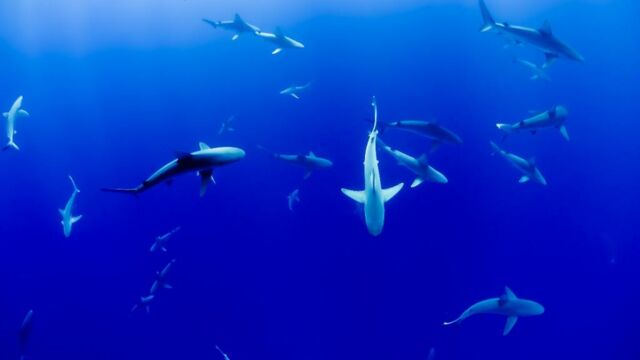Marine ecologist, Neil Hammerschlag has caught and released many sharks in his lifetime, but his most memorable catch was the bull shark that weighed an astonishing 450 kgs. She was named Big Bull and was one of the largest sharks to have ever been seen. Hammerschlag, the director of Shark Research and Conservation Program at the University of Miami told National Geographic:
Discover our latest podcast
It literally took my breath away.
It wasn't really about the length, but more about the build. Its neck was so bulging, like a wrestler's.
Catching Big Bull
Hammerschlag and his crew caught Big Bull in 2012, off Marathon—a town in the Florida Keys. When they analysed her blood and tissue samples, which they retrieved without harming the shark, her blood work indicated that she had recently given birth. Ever since they first caught her, Big Bull has been missing for years.
Her offspring
Surprisingly, six years later Hammerschlag’s colleagues caught and took samples from two young sharks—a male and a female—in Palm Beach, 200 miles away from Marathon. When the team conducted a DNA analysis to see if there was a match between the sharks and any other sharks who were already in their database, they discovered something unexpected. Both the sharks were descendants of the infamous Big Bull. According to Hammerschlag, finding offspring of a shark is a rare phenomenon, he joked:
I mean, you're looking for a needle, not in a haystack, but in all the oceans of the world.
The previous year, even further north of the coast, a year-old bull shark was found to have half of Big Bull’s genes, meaning she was also its mother. All these findings indicate that Big Bull was very busy repopulating the oceans with her genes which is not unusual given that a female bull shark usually gives birth to thirteen pups each year. Daly-Engel, director of the Florida Tech Shark Conservation Lab said:
The populations seem to be dominated by some really large females. Once [they reach] that size, [they] kind of become super breeders and [they] don't have a ton of predators.















